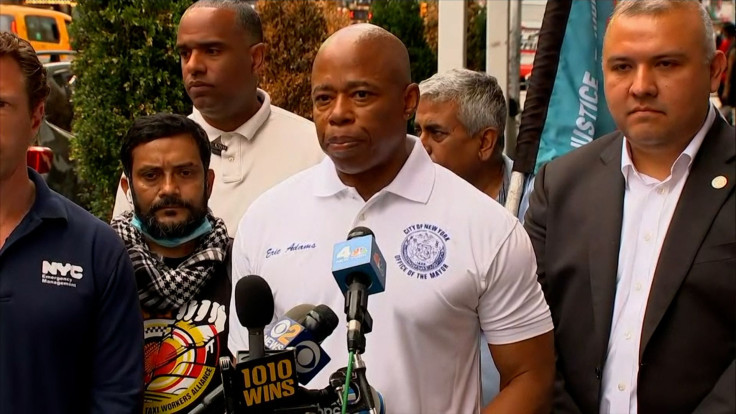
A Denver authority asked migrants to avoid going to the city, saying its resources to deal with new arrivals is depleted and this situation will lead them to "suffer."
The pledge was not made in abstract, but rather was a concrete event. It took place when Communications Liaison Andres Carrera told a group of people in a shelter to move elsewhere as "opportunities are over."
"New York gives you more. Chicago gives you more. So I suggest you go there where there is longer-term shelter. There are also more job opportunities there," the official added in Spanish.
However, that may not be the case. Officials from Chicago and New York City have also been implementing measures to reduce both the influx of migrants to their cities and the economic impact its having on its coffers.
NYC Mayor Eric Adams recently asked the federal government to implement a "decompression strategy" which would distribute migrants across the country rather than seeing most of them in certain cities.
"Cities should not be handling a national crisis of this magnitude," said Adams. "We're going to start seeing the visualization of this crisis. We've done a great job, but we can't continue to sustain this."

The migrants in Denver were reportedly bussed into the city in late March as part of Texas' "Lone Star Operation," which has sent tens of thousands of people from the southern state up north.
Texas officials said in March that, according to their latest figures, more than 105,000 migrants have been sent to different cities up north since 2022. Almost 40,000 of them ended in New York City, whose authorities say that overall they have received more than 180,000 asylum-seekers over that period. Chicago and Denver are other cities that have received a significant influx of migrants.
The Denver official told the crowd in the shelter that the city had "received too many migrants" and has ran out of resources. "If you stay here, you are going to suffer even more and I don't want to see this," he added, before going on to offer them bus tickets anywhere else in the country. "We can take you up to the Canadian border, wherever."
The city has already imposed a stricter limit on the amount of time arrivals can stay in shelters (two weeks for individuals and six for families with children). It has also began clearing out camps, something Chicago has already started doing as well.
© 2024 Latin Times. All rights reserved. Do not reproduce without permission.







